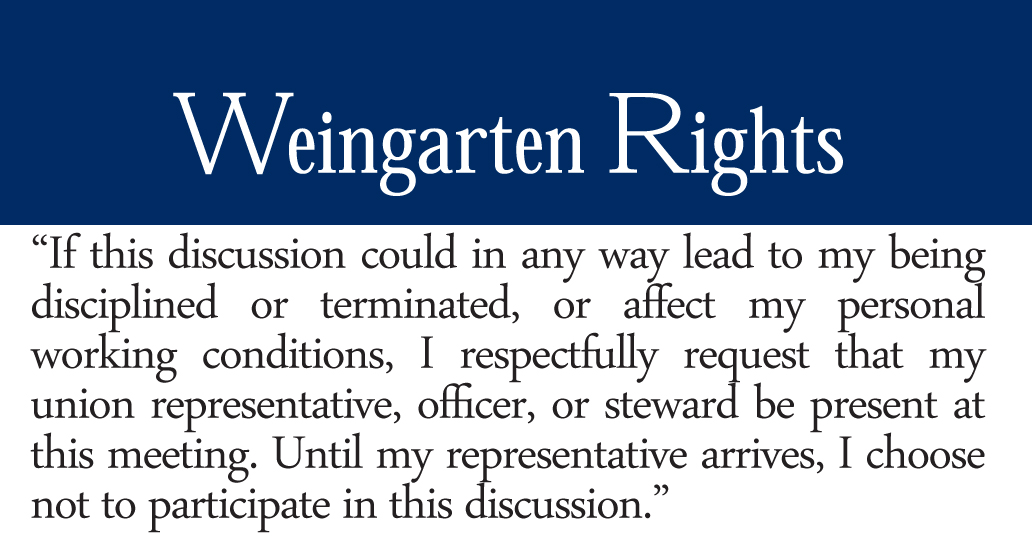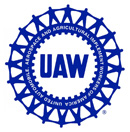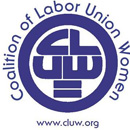I’ve recently filed a grievance, what is the procedure after filing?
Step 3- If the Plant Shop Committee and the Union Relations Supervisor are unable to dispose of the grievance, the Plant Shop Committee then refers the grievance to the proper higher officer or officers of the local union who may then take the grievance up with the Plant Manager, or his designated representative, after arranging a meeting. Upon request of the President of the local union the Regional Director of the Union for the area in which the plant is located, or a regularly designated representative of the Regional Director and one member of the Plant Shop Committee may attend the meeting.
Step 4- If the officers of the local union and the plant nanager, or his designated rep., are unable to dispose of the grievance, the officers of the local union then refer the grievance to the regional representative of the union for the area in which the plant is located. Within ten (10) days of such meeting the plant manager, or his designated rep., shall forward a statement of the parties’ understanding as to the disposition, if any, of the grievance discussed. The Regional Representative shall either dispose of the grievance or if the grievance merits appeal, refer it to the International Union which, if the grievance merits appeal, shall refer the grievance to the Appeal Board.
How do I get paid for Jury Duty?
When you receive a letter (a summons) with the date and time you need to serve you can give a copy of this letter to your BUL or let them know what day you will be missing and why. In the letter you receive from the courts (the summons) there will be a number to call after 5:00 pm the night before you are to appear for jury duty. If you call this number and they tell you that you are no longer needed, you must show up for work! If you are told by the recording that you are still to appear for jury duty, you must then call the company attendance line and tell them that you will be absent due to jury duty. Yes, even though you have already told your BUL. Before you leave from jury duty, they may pass out $10.00 checks or you may receive it at a later date. Unless the company rules change, you can cash the check and keep the money for yourself. You should recieve a notorized letter from the court stating the dates you were on jury duty. Make sure you scan and submit this letter through the Kiosk. If you do not submit this information before the end of that week's pay period they might refuse you payment. You should keep a photocopy for your own records. (Units 2-11 please check with your union steward for your companies policy on jury duty.)
What happens at a Membership Meeting?
Simple Meeting Agenda:

What are Weingarten Rights?
Weingarten rights guarantee an employee the right to Union representation during an investigatory interview if they have a reasonable belief that the investigatory interview will result in disciplinary action. These rights, established by the Supreme Court, in 1975 in the case of J'. Weingarten Inc must be claimed by the employee. The supervisor has no obligation to inform an employee that s/he is entitled to Union representation.
· The case is based on an employee who worked at a food outlet operated by J. Weingarten, Inc. She was summoned to an interview with supervisors and questioned about failing to pay full price for a box of chicken. The employee, a member of the Retail Clerks Union, asked for a union representative several times, but her request was refused by the manager each time. The employee reported what had happened to her shop steward and other union representatives. As a result of her being denied a union representative, an unfair labor practice charge was filed with the National Labor Relations Board, and the ruling in favor of the employee was appealed numerous times until it went before the high court.
What is an Investigatory Interview?
Employees have Weingarten rights only during investigatory interviews. An investigatory interview occurs when a supervisor questions an employee to obtain information which could be used as a basis for discipline or asks an employee to defend his or her conduct. If an employee has a reasonable belief that discipline or other adverse consequences may result from what he or she says, the employee has a right to request union representation. Investigatory interviews usually relate to subjects such as...
- absenteeism
- drinking
- fighting
- poor attitude
- violation of safety rules
- accidents
- drugs
- insubordination
- sabotage
- work performance
- damage to state property
- falsification of records
- lateness
- theft
- violation of work procedures
If you are brought in for questioning a suggested standard statement is: "If this discussion could in any way lead to my being disciplined or discharged, I request that my Union Representative be present at the meeting. Without representation, I choose not to answer any questions."
Management’s options upon your request for Union Representation
After a valid request, the supervisor must:
- Grant the request and delay the interview until the Union representative arrives and has a chance to consult privately with the employee: or
- Deny the request and end the interview immediately. If the supervisor denies the request and continues to ask questions, this is an unfair labor practice and the employee has a right to refuse to answer. The employee cannot be disciplined for such refusal but is required to sit there until the supervisor terminates the interview. Leaving before this happens may constitute punishable insubordination; or
- Give the employee a Choice of: 1. having the interview without representation or 2. ending the interview.
Frequently Asked Questions Regarding Weingarten Rights
Do Weingarten rights apply automatically? –No, the supervisor is not required to inform the employee of his/her rights. The employee must request representation when they reasonably believe it will result in discipline AND when a valid request for a representative is made (you need both). Nor must the employee repeat a request for representation. Where an employee has been advised that disciplinary action will not be taken, Weingarten rights will not apply.
Can Weingarten rights be waived? –Yes, but an employee’s waiver of Weingarten rights must be made knowingly and voluntarily, and it must be clear and unmistakable.
Is it a violation to discipline an employee for invoking his/her Weingarten rights? –Yes, it is a violation of the National Labor Relations Act to discipline an employee for invoking his/her Weingarten rights. Similarly, it is a violation for an employer to discipline an employee for refusing to waive his/her Weingarten rights.
Do you have to attend a meeting if ordered? –Regardless of whether you get representation or not, you need to appear at the appointed time and place. Upon questioning, immediately reiterate your request – and make sure everything gets on the record;
Who can be your rep.? –An employee has the right to have a union representative. If the chosen union representative is not available, the employee must be provided an alternative representative if requested.
May the representative participate in the interview? –Yes. Union Reps. have active roles to play. They may speak privately with the member before the interview, must be advised of the interview subject matter by management, request that the supervisor clarify questions, give advice and counsel the employee on how to answer the questions, and provide additional information to the supervisor at the end of the questioning. The Union Representative does not have the right to tell the employee not to answer nor, obviously, to give false answers.
Take notes– All reps. should take detailed notes, recording everything that is said, by whom, and any intimidation or other unlawful tactics.
An employee has NO right to the presence of a Union representative where:
- The meeting is merely for the purpose of conveying work instructions, training, or communicating needed corrections in the employee's work techniques.
- The employee is assured by the employer prior to the interview that no discipline or employment consequences can result from the interview.
- The employer has reached a final decision to impose certain discipline on the employee prior to the interview, and the purpose of the interview is to inform the employee of the discipline or to impose it.
- Any conversation or discussion about the previously determined discipline which is initiated by the employee and without employer encouragement or instigation after the employee is informed of the action.
Even in the above four (4) circumstances, the employee can still ask for representation. Most employers will permit a representative to attend even when not required to.
Spreading The Word
Unfortunately, the Supreme Court did not require employers to tell workers about their right to union assistance, as it did in the Miranda decision covering police interrogations. The union must educate members about their Weingarten rights BEFORE an occasion to use them arises.
*Laws are subject to change this is an informational post only, it is not legal advice.
How to Submit a Bylaw Change
ARTICLE (32)
Amendments
Section 1. The Bylaws of this Amalgamated Local Union shall, at all times, be subordinate and subject to the provisions of the Constitution of the International Union, as such constitution now exists or may from time to time hereafter be altered or amended. In the event of any conflict, the Constitution of the International Union shall govern.
Section 2. These Bylaws may be amended by presenting a motion in writing setting forth the amendment(s) sought, to the local’s Recording Secretary, prior to a Membership Meeting.
- That motion will then be presented to the Chairperson of the Bylaws Committee. The Bylaws Committee shall review and discuss the motion, as well as offer suggestions to the member who presented the motion, if necessary, for the purpose of conformity with the International U.A.W. Constitution as well as understandability and clarity.
- The motion shall be read to the following Membership Meeting in the form of a first reading.
- Said bylaw will be reported to the succeeding Membership Meeting and a notice of shall be posted describing the particular Bylaw Amendments that will be considered. Upon a quorum and if approved by (2/3) of the membership vote by secret ballot thereon at this succeeding meeting, the amendment shall be considered adopted by the membership.
- Should the Bylaws Committee need more time for reviewing and verifying conformity with the International Constitution before the first reading; the “reading” will occur at the next possible Membership Meeting.
Section 3. Resubmitting of an amendment that changes a specific article or section cannot be done for a period of six (6) months.












